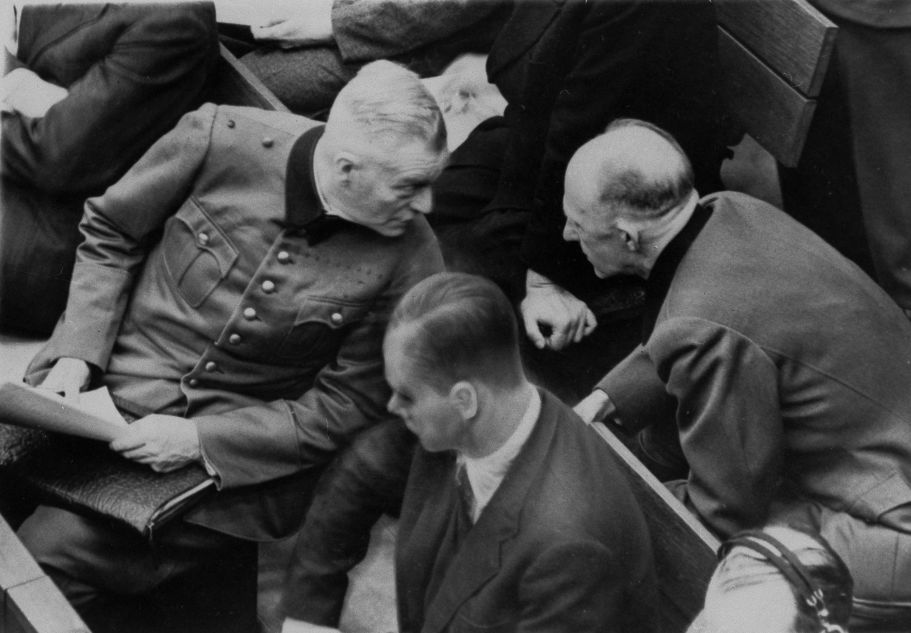Adolf Hitler had a complicated relationship with the military. The career officers, brought up in the tradition of the Kaiser's Germany, could hardly trust the Austrian corporal; many openly despised the Führer. Hitler faced military opposition many times – ranging from quiet sabotage to an attempted assassination. But some generals became the mainstay of the Nazi regime and at the same time - war criminals on an international scale. Two of them, Wilhelm Keitel and Alfred Jodl, signed Germany's surrender in World War II and appeared before the Nuremberg trials.
From Trench to General Staff
Wilhelm Bodewin Johann Gustav Keitel was born on 22 September 1882 into the family of a Brunswick landowner. At the age of six, he lost his mother. From the age of nine, he began to dream of a military career. Wilhelm as a volunteer in the 46th Lower Saxon Artillery Regiment, stationed near his home. After graduating from school, Keitel arrived at the location of the artillery regiment and received the rank of Fahnenjunker (officer cadet). One year later, he became a lieutenant and obtained a military education. In 1909, he got married; his three sons followed in their father's footsteps, choosing military careers.
At the beginning of World War I, Oberleutnant Keitel served on the Western Front and was seriously wounded. In 1914, he received the Iron Crosses of both degrees, then ten more German orders and one Austrian. By the end of the war, Keitel was serving as the Chief of Operations for the Marine Corps Headquarters in Flanders.
In October 1929, Keitel was assigned to the Ministry of War and was soon made head of the Organisational Department. In October 1935, he was appointed chief of the Reich Ministry of War's Armed Forces Office. In November 1937, at a meeting with the military, Hitler outlined his expansionist plans for Europe. Keitel's long-time friend, Defence Minister Werner von Blomberg and other military leaders dared to object – in their opinion, Germany was not ready for war. But the Führer did not listen to his obstinate generals, opting instead to get rid of them. At the same time, the structure of command and control of the armed forces was changed. On 4 February 1938, the independent Ministry of Defense was abolished and replaced by the High Command of the Wehrmacht (OKW), subordinated personally to Hitler. The headquarters of the High Command was headed by Keitel. Until the collapse of the Third Reich, he remained Chief of Staff of the Wehrmacht.
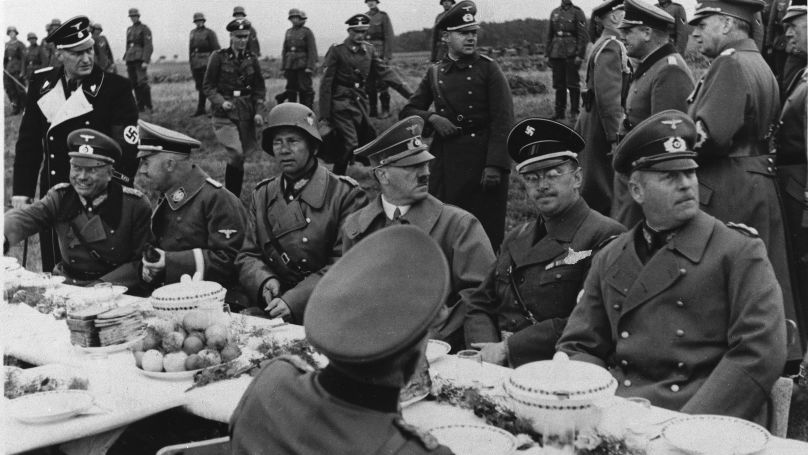
‘Lakeitel’
During the interrogations at Nuremberg, Wilhelm Keitel assured that he had been appointed head of the OKW “to his surprise”. However, he had participated in every one of Hitler’s military campaigns.
In September 1939, Nazi Germany attacked Poland and secured a resounding victory in less than a month. This campaign earned Keitel the Reich's highest award, the Knight's Cross of the Iron Cross. “I submit that Keitel's vital part, again, in the preparation for the aggression against Poland is clearly established beyond the possibility of dispute,” Geoffrey D. Roberts, the UK’s Leading Counsel, who reported to the tribunal on the individual responsibility of Keitel and Jodl, stressed.
In July 1940, the Reich defeated France, and Keitel became Field Marshal General. However, the OKW Chief of Staff did not like the idea of the French campaign; he also protested against the plans to attack the USSR. Keitel tried to resign both times, but Hitler did not let him. Despite his disagreement, the field marshal continued to serve the Führer faithfully – he gave orders for the secret murder of French military leaders and signed off on Operation Barbarossa: the invasion of the Soviet Union. For his passivity, other military brass nicknamed the OKW Chief of Staff “Lakeitel” and “The Nodding Donkey”.
“Keitel, being Chief of the High Command of the Armed Forces, and Jodl, being Chief of the Operations Staff, were vitally and intimately concerned with every single act of aggression which took place successively against the various victims of Nazi aggression,” Roberts pointed out. According to him, “in all acts of aggression Keitel played an important role and acted as Hitler's right-hand man in charge of the German armed forces”.
Disagreement with the Führer did not prevent Keitel from signing criminal documents – the “Decree on the Jurisdiction of Martial Law and on Special Measures of the Troops” prior to the Barbarossa invasion on 13 May 1941, proclaiming a merciless war against resistance in the Soviet Union; and the Commissar Order of 6 June 1941, prescribing the execution of Jewish prisoners and political officers on the spot, without trial or investigation. On 16 September 1941, the head of the OKW signed an order to shoot hostages in the east – from fifty to one hundred communists were to be killed for the murder of one German soldier. On 16 December 1942, in the middle of the Soviet counter-offensive near Stalingrad, an order to fight the partisans was issued. The German soldiers were allowed to fight by “any means with no limits, both against women and children”. It was Keitel who allowed Reichsführer SS Heinrich Himmler to carry out ethnic cleansing in occupied Soviet territory. It was he who ordered that pilots from the French Normandie-Niemen Fighter Regiment should not be considered prisoners of war and were to be executed on the spot.
“It will appear that the Defendants Keitel and Jodl were informed by official legal advisors that the orders to brand Russian prisoners of war, to shackle British prisoners of war, and to execute commando prisoners were clear violations of international law. Nevertheless, these orders were put into effect”, — Robert Jackson, Chief US Prosecutor, stressed at Nuremberg.
In September 1942, Keitel dared to object to Hitler for the last time. The Führer then lashed out with anger at Field Marshal-General Wilhelm List, who had taken Voroshilovsk (now Stavropol), Krasnodar and raised the flag of the Third Reich over Mount Elbrus, but had failed to reach the Caspian Sea. Keitel tried to defend List, pointing out his obvious successes, but Hitler would not listen to the head of the OKW and sent List to the reserves.
After that, Keitel no longer stood up for his army comrades. On 20 July 1944, when an explosion rocked the Führer’s “Wolfsschanze” Headquarters and Hitler miraculously escaped death, the OKW chief, regaining consciousness, was the first to rush to the wounded Führer and remove him from the scene. The plot by the German generals to remove the Nazis from power was uncovered and brutally suppressed. Keitel personally attended the Court of Honour, which handed many of the military commanders over to the “People's Court” created by Hitler for punishment.
Supreme Capitulator
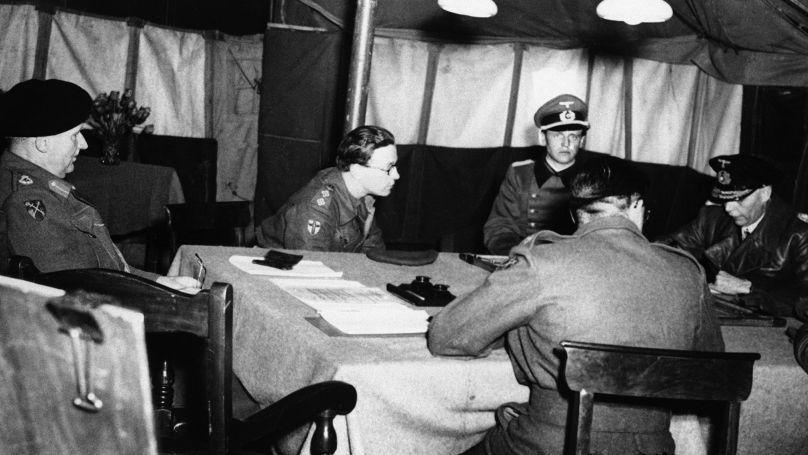
But the war was still lost, and the field marshal was well aware of this. He watched as Soviet and Western armies came closer and closer, entering German territory. He witnessed the battles for Berlin. He experienced the suicide of Hitler and the next day that of Goebbels, and the flight of almost all the upper echelons of the Reich. He saw the red flags rise over the Reichstag.
On the night of 8 to 9 May 1945, Keitel repeated the signing of the instrument of unconditional surrender of Germany in the Karlshorst district of Berlin. Unlike the first instrument of surrender accepted the day before by the Western Allies, the lead role at the ceremony was played by a representative of the USSR – Marshal Georgy Zhukov, Commander of the 1st Belorussian Front. The victors then held a festive banquet.
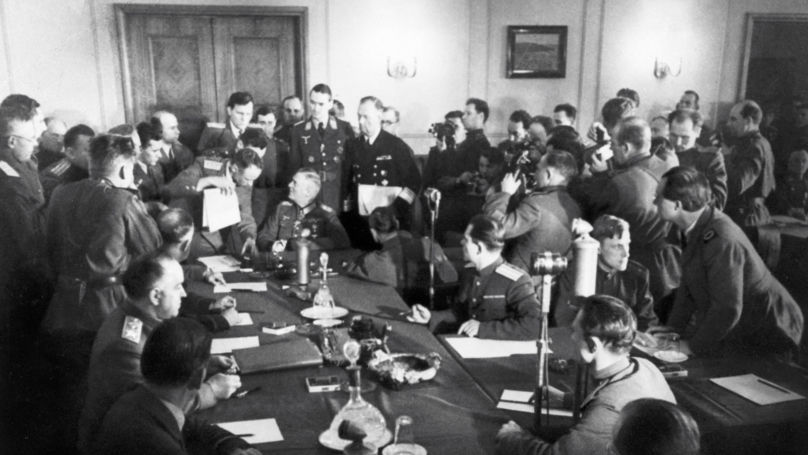
“After the instrument was signed, Keitel stood up from the table, put on his right glove and tried again to flaunt his military bearing, but he failed and retreated quietly to his desk”, Zhukov recalled. “At 0.43 a.m. on 9 May 1945, the signing of the instrument of unconditional surrender of Germany was concluded. I invited the German delegation to leave the hall. (...)On behalf of the Soviet High Command I warmly congratulated all those present on their long-awaited victory. An unimaginable uproar arose in the hall. Everybody congratulated each other, shook hands. Many had tears of joy in their eyes”.
Four days later, Keitel was arrested as the head of the Wehrmacht. That autumn, he appeared before the International Military Tribunal, where he was charged and convicted on four counts: conspiracy to commit crimes against peace; planning, initiating and waging wars of aggression; war crimes; and crimes against humanity.
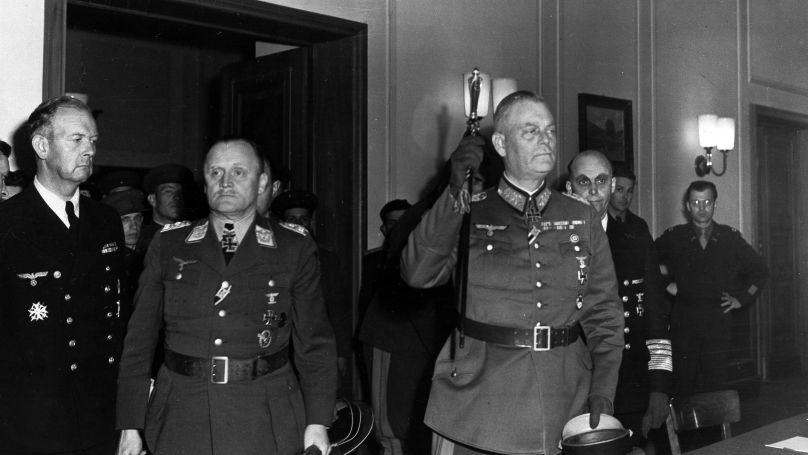
Jodl, the War Planner
The second man in the Wehrmacht was Alfred Josef Ferdinand Jodl.
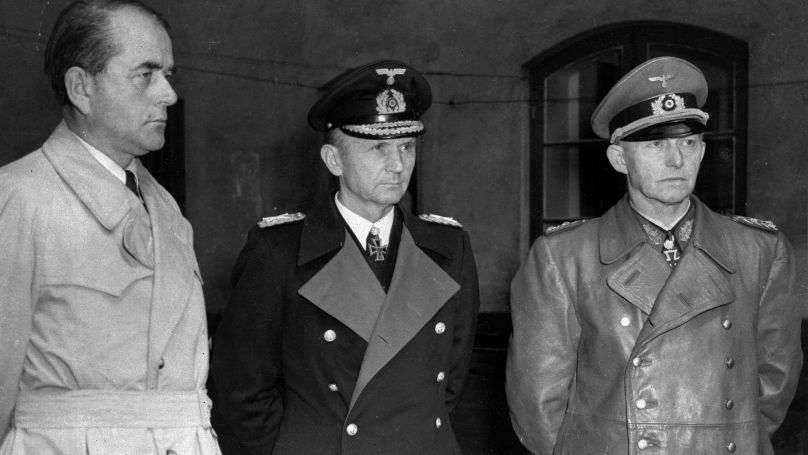
He was born on 10 May 1890 in Würzburg, Bavaria, the son of a retired artillery captain. He fought in World War I, was wounded and decorated. He married twice (the second time shortly before the fall of the Reich); both marriages were childless.
In 1935, he was transferred from the Land Forces Directorate to the National Defence Directorate, and on 1 July he was appointed head of this directorate in the Wehrmacht, the new Armed Forces of the Third Reich.
“It fixes Jodl with knowledge of, and complicity in, the plan to reoccupy the Rhineland country, contrary to the Versailles Treaty, and (...) he himself was involved in this event,” Geoffrey D. Roberts, British Leading Counsel, voiced an opinion. He also argued that “Keitel and Jodl played an important, indeed a vital part, in the aggression against Czechoslovakia which led up to the Pact of Munich”.
On 1 April 1939, Jodl was promoted to Major-General and invited to Berlin, where he was assigned to lead the Operations Staff of the High Command of the Wehrmacht. In August 1940, this department was renamed the Wehrmacht-Führungsamt (Operations Staff) of the Armed Forces High Command (OKW).
Jodl was in charge of the high command until the very end of World War II. According to Leading Counsel Roberts, Jodl “set up a planning staff of OKW for the carrying out of (…) operations” against Norway and Denmark, and “the invasion of the Low Countries and Luxembourg equally, in my submission, is clearly shown by the documents to have been controlled and directed by Keitel with Jodl's assistance”. Roberts also considered the involvement of both defendants in the aggression against Greece and Yugoslavia to be proven.
“No doubt all these wicked schemes germinated in the wicked brain of Hitler, but he could not carry them out alone. He wanted men nearly as wicked and nearly as unscrupulous as himself,” Geoffrey Roberts concluded.
At the same time, he presented that “so far as Jodl's part in the War Crimes and Crimes against Humanity is concerned, he figures much less than Keitel,” as he had “he had no power of giving orders or directives”. He was reminded of the order of 28 October 1944 to evacuate all residents of Northern Norway and to burn down their houses so that they could not help the Russians.
After the French campaign, he was promoted to Lieutenant General, and in January 1944 rose to the rank of Colonel-General. He was Keitel's right-hand man throughout World War II, although the OKW's influence waned: after the defeat near Moscow in December 1941, the subordinate High Command of the Armed Forces was headed by Adolf Hitler, who, of course, was not subordinate to anyone.
During the attempted assassination of Hitler on 20 July 1944, Jodl, like Keitel, attended a meeting at the Führer's headquarters, was wounded, and awarded a badge for this wound. Together with his commander, he remained loyal to the Führer but also understood that the war was lost. “If the army has no reserves left, fighting to the last soldier makes no sense,” he wrote in his diary shortly before the fall of Berlin. But the subject was taboo in Nazi Germany, and Jodl kept quiet.
However, it was he who, with the permission of the new President of the German Reich, Karl Dönitz, signed on 7 May the instrument of surrender of Germany in Reims, France. Joseph Stalin then insisted on re-signing the document - he was convinced that the capitulation should have been accepted in the capital of the Reich and that the Soviet Union should play a major role.
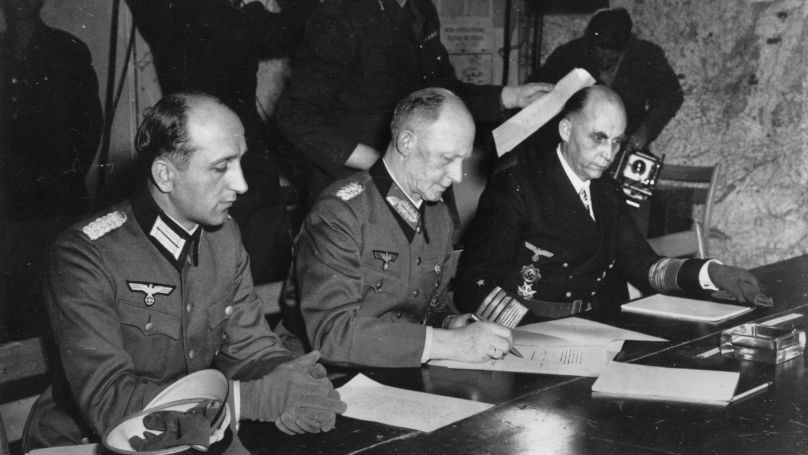
That same day Dönitz honoured Jodl with the Knight's Cross of the Iron Cross with Oak Leaves.
However, that was the last high accolade for Alfred Jodl. On 23 May 1945, he was arrested in Flensburg along with the rest of the Dönitz government. At Nuremberg, Jodl was charged on all four counts of the indictment as someone who “in the strict military sense, (…) was the actual planner of the war and responsible in large measure for the strategy and conduct of operations”.
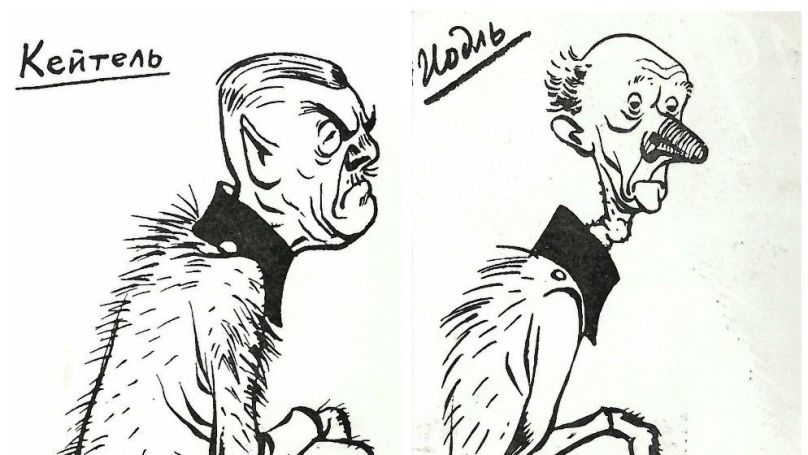
Sources:
Nuremberg Trials Stenograph. Volume I, IV, Second Edition (2019). Translated from English by Sergey Miroshnichenko.
Oleg Vishlev. Keitel, Wilhelm // “The Great Russian Encyclopaedia”
Georgy Zhukov. “Marshal of the Soviet Union: Reminiscences and Reflections”
Alfred Jodl. “Soldier without Fear and Reproach: Fighting the Way of the Chief of OKW Germany, 1933-1945”
Guido Knopp. Die Wehrmacht (Eine Bilanz)
The Nuremberg Trials (Compendium) / Edited by K.P. Gorshenin (editor-in-chief), R.A. Rudenko and I.T. Nikitchenko, Vol. 2
By Daniil Sidorov
